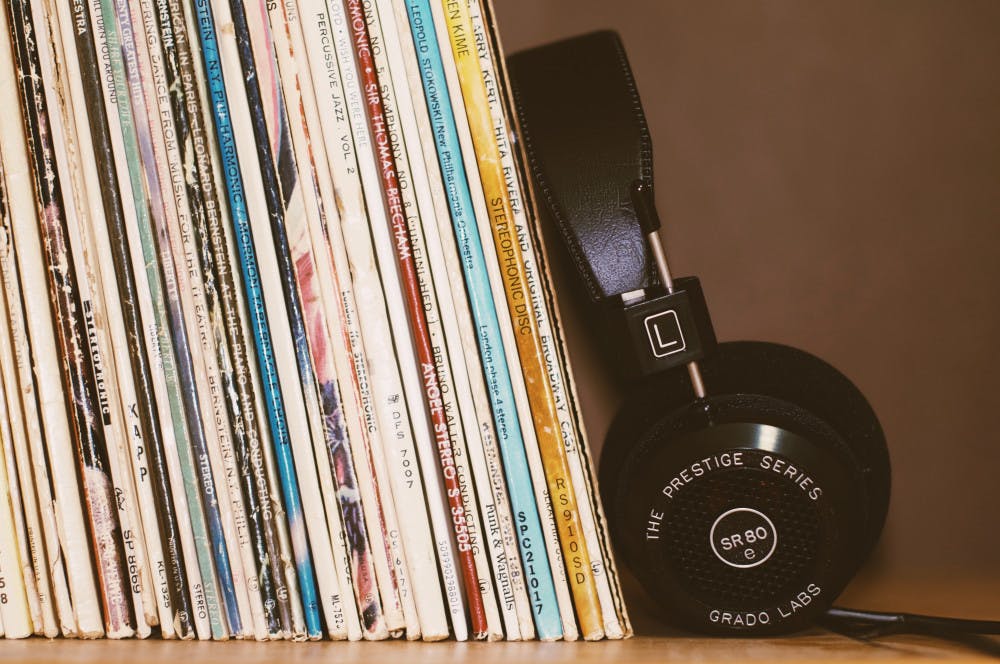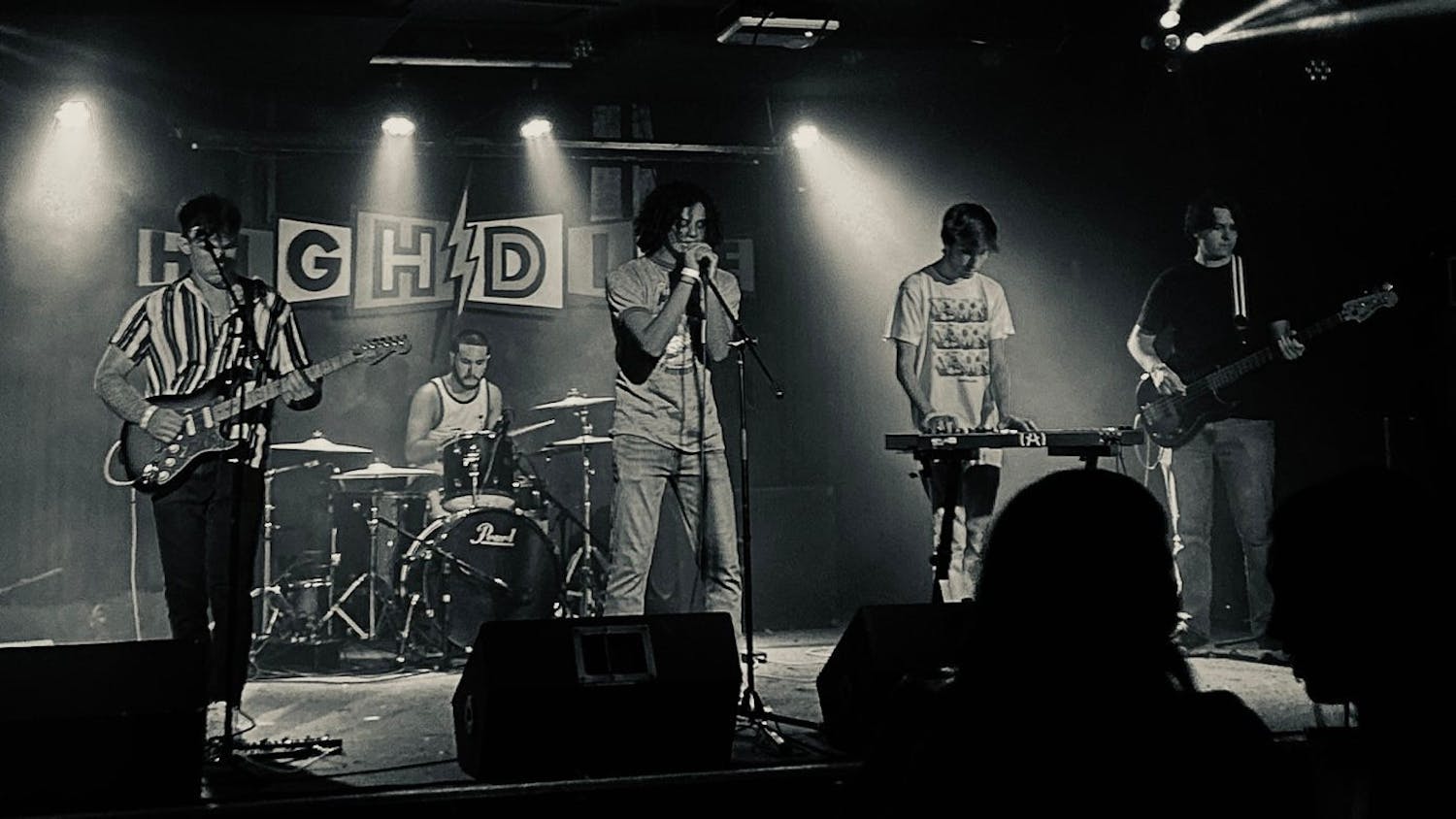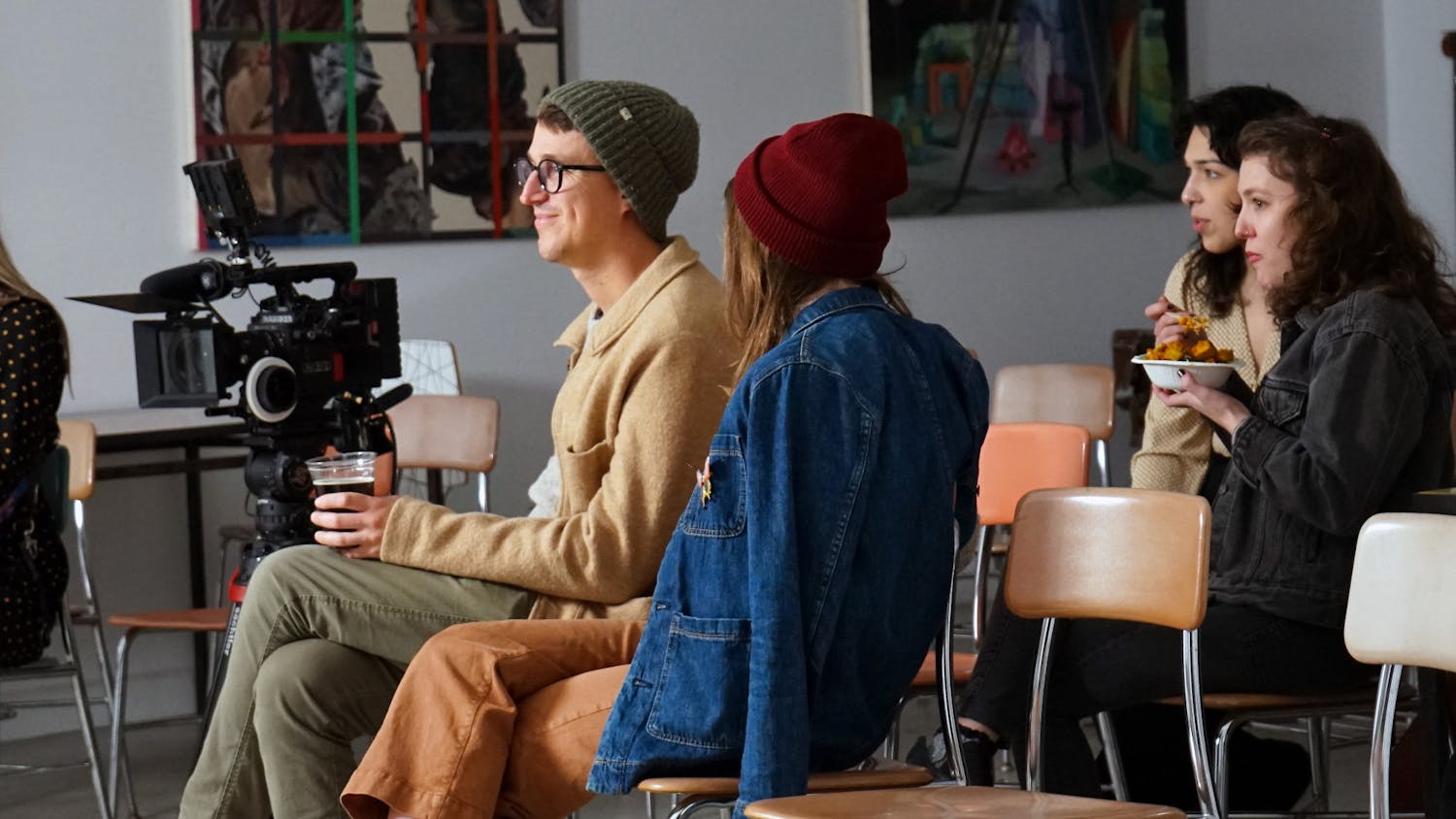Music reverberates through nearly every crevice on most college campuses. “Can you make me a playlist?” and “Is the venue 21-up?” are frequent questions heard through dorm room walls or across dining hall tables.
The way students discover music has evolved and would now be unrecognizable to those who once relied on college radio for new music. Students’ options today are limitless, and this has had an effect on the way students listen to and discover music.
College radio stations previously maintained the supreme status of the “cool” place to discover new music recommended by in-the-know students.
Genevieve Curtis, an adjunct professor of screenwriting and film production at UF, can relate to this sentiment. While attending the University of Central Florida, she was a songwriter in a punk band.
Curtis said WPRK, a college radio station owned and operated by Rollins College, was a great source of local and independent music for the greater Orlando area.
“There was a big music scene that would travel up and down I-75 and through Gainesville,” she said. “The local radio station there would feature a lot of the music coming out of this scene.”
Curtis talked about the meaning of college radio and how it created and facilitated music scenes. Bands would record their demos, college radio stations would play them and kids would like it and come out to the shows. College radio spawned location-based communities, which is very different from the fandom or hatred internet forums common today.
GHQ, a Futuri-partnered radio station, is UF’s central student-run radio station on campus. which aims to be an all-encompassing music listening experience. Unfortunately, even the most popular radio stations on XM cannot introduce to the masses new music in the way a viral meme can. Just ask Denzel Curry or Lil Nas X.
While the ways students consume and share music has changed from physical mixtapes to online playlists, Curtis said the best way to discover new music has always been by meeting different types of people.
“What I would say to anybody who wants to find good music is start hanging out with artists,” she said. “Artists are where the music is, so start going to shows, art galleries and poetry readings because people that are looking to be inspired travel in packs.”
Amie Kreppel, director of the European Union Studies program, graduated with a doctorate from the University of California, Los Angeles in 1998. Kreppel talks about a time gone by when sneaking large microphones into venues to tape a live show was par for the course. She listened to UCLA’s prominent college radio stations along with famous stations like KROQ.
“Music was just very omnipresent in Berkeley,” she said. “Music was all what you heard live, and what you could record through a cassette tape ― so most of it was live. It was all so much harder, and therefore everything was more valuable.”
Kreppel, like many others, is conflicted about whether streaming services have an overall positive or negative effect on music consumption when compared with the previous rule of college radio stations.
“By not having college radio, you don’t have someone curating and going out and finding something that you might not already know about,” Kreppel said. “It requires a much more proactive work on the part of the students to find the music. But I think you also really lose the community that college radio had. It used to be quite the community to the point that you would try to find music that you could send to the college radio station and get them to play it — even if it was your own band.”
The evolution of music consumption has been everything but gradual. Every five years since the dawn of Napster in 2000, a new addition to the modern world adds to this current climate where algorithms and lifestyle marketing rule the average music listener, such as the iPhone, MP3 players, Spotify, Apple Music and Pandora.
Kreppel made the point that artists are freer today than ever before. They can create, produce and release music without the need for gatekeeper approval. If the music is good, people will notice. On the other hand, Curtis brings the argument that musicians today are hindered by streaming services and their encouragement for artists to commodify themselves.
Each student at UF has their own taste, formed like a sculpture being steadily chiseled by thousands of hit-or-miss songs and artists. Streaming services like Spotify, Apple Music and Tidal exacerbate this process by curating daily mixes, which collect a subscriber’s recently played songs and dump them into an algorithm-formulated playlist.
Taylar Jorquera, a 21-year-old UF philosophy and history senior, talked about her relationship with college radio and radio in general.
“I don’t listen to radio at all,” she said. “At least for me and for people that I know, we don’t listen to radio because you just have everything in an app.”
Jorquera said she finds the experience of listening to music as much more individualized with every new app or technology pointing in the direction of mobilization like earbuds, social media and streaming services.
Michael Miller, a 21-year-old UF biochemistry and English senior, discussed how he finds new music.
“Almost all of the new music that I find is recommended to me by friends, but occasionally, I’ll use the Discover Weekly Spotify playlist and find something,” he said.
Unlimited artists, albums and song choices are available to every student with a Wi-Fi connection. The majority of music scenes are no longer location-based, but this also frees listeners from the restrictive handcuffs of their area code. BROCKHAMPTON and Superorganism are two groups that are prime examples of the benefits that come with today’s online social interactions.
Social media, along with streaming services, have had a Big Bang-like effect on the music world. Kreppel said this combination can either break people free from once-curated options or keep them insulated in their echo chambers.
“The internet and the accessibility to music is freeing, but it also loosens communities, and what I have found with steaming music is that they just keep giving me more of what I like, just like Facebook gives me more posts that align with my political beliefs,” Kreppel said. “So you just continue in your bubble, except now your bubble is you alone with a computer as opposed to you and a record store with a bunch of people. So maybe it is a bad thing. I don’t know.”
In a world where you can find everything online, the best way to discover new music may still be recommendations from your friends.






